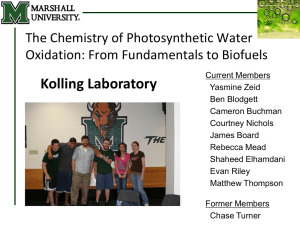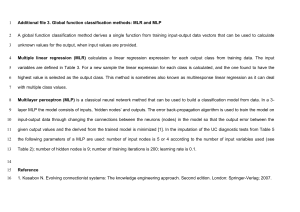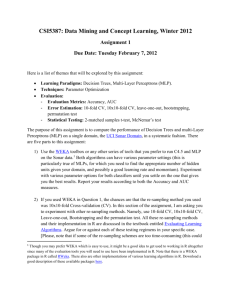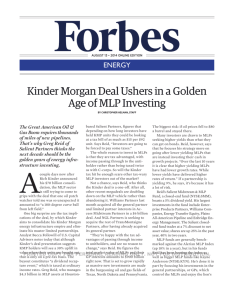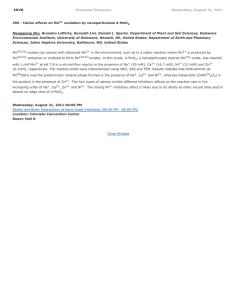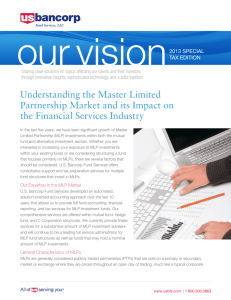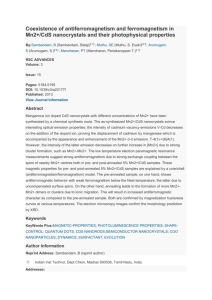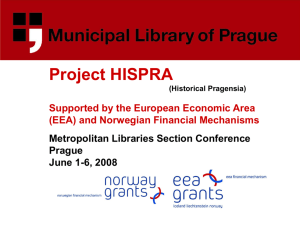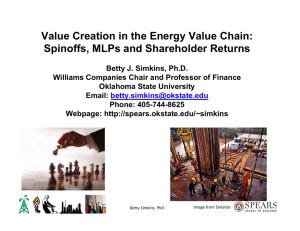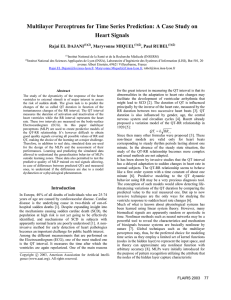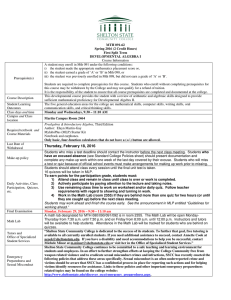The following article appeared on the Law360 website on December... required). Author: Erica Teichert
advertisement
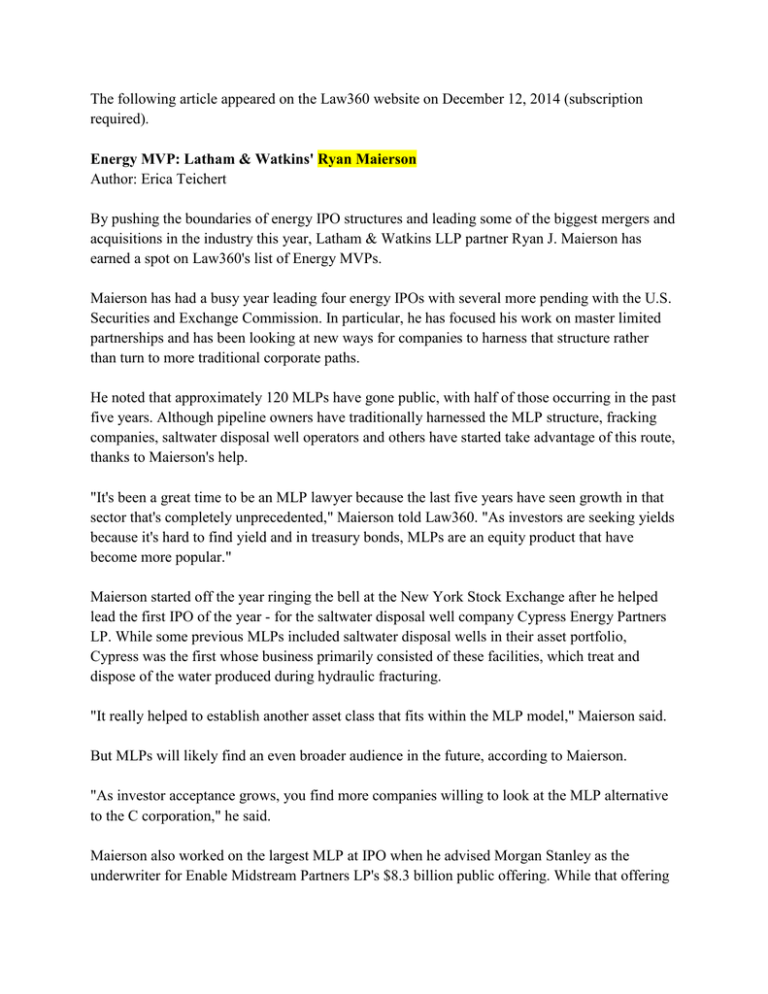
The following article appeared on the Law360 website on December 12, 2014 (subscription required). Energy MVP: Latham & Watkins' Ryan Maierson Author: Erica Teichert By pushing the boundaries of energy IPO structures and leading some of the biggest mergers and acquisitions in the industry this year, Latham & Watkins LLP partner Ryan J. Maierson has earned a spot on Law360's list of Energy MVPs. Maierson has had a busy year leading four energy IPOs with several more pending with the U.S. Securities and Exchange Commission. In particular, he has focused his work on master limited partnerships and has been looking at new ways for companies to harness that structure rather than turn to more traditional corporate paths. He noted that approximately 120 MLPs have gone public, with half of those occurring in the past five years. Although pipeline owners have traditionally harnessed the MLP structure, fracking companies, saltwater disposal well operators and others have started take advantage of this route, thanks to Maierson's help. "It's been a great time to be an MLP lawyer because the last five years have seen growth in that sector that's completely unprecedented," Maierson told Law360. "As investors are seeking yields because it's hard to find yield and in treasury bonds, MLPs are an equity product that have become more popular." Maierson started off the year ringing the bell at the New York Stock Exchange after he helped lead the first IPO of the year - for the saltwater disposal well company Cypress Energy Partners LP. While some previous MLPs included saltwater disposal wells in their asset portfolio, Cypress was the first whose business primarily consisted of these facilities, which treat and dispose of the water produced during hydraulic fracturing. "It really helped to establish another asset class that fits within the MLP model," Maierson said. But MLPs will likely find an even broader audience in the future, according to Maierson. "As investor acceptance grows, you find more companies willing to look at the MLP alternative to the C corporation," he said. Maierson also worked on the largest MLP at IPO when he advised Morgan Stanley as the underwriter for Enable Midstream Partners LP's $8.3 billion public offering. While that offering involved pipelines - a more traditional MLP business - it also involved some interesting dynamics as Enable was a joint venture between CenterPoint Energy and OGE Energy Corp. "Any time you're dealing with a joint venture, you have three possible clients," Maierson said. "You have the joint venture itself, you have CenterPoint and OGE and you have each of the joint venture owners. They may have divergent interests on different issues." But Maierson believes that his diverse client base of energy companies and underwriters has helped him understand how to juggle those competing interests. "It's sort of another angle," he said. "Representing the issuer rather the underwriter is another important split. I like to have a nice balance of both." Maierson's involvement in energy megadeals doesn't end with MLPs, as he has also worked for Access Midstream Partners LP on its $30 billion merger with Williams Partners LP, which is set to become one of the largest MLP-to-MLP mergers ever. That deal involved some unusual negotiations as the companies had to create an arm's length, third-party process to represent shareholders' interests during the deal even though Williams already had control of both companies. "It's sort of a fascinating process to create an arms' length negotiation," he said. "It's fairly unusual." Based in Houston, Maierson also finds time in the spring to teach a mergers and acquisitions class at the University of Houston's law school and give students an opportunity to work through an entire hypothetical transaction rather than just study the case law. "One of the challenges I think for transactional lawyers is law school is very built around literature," Maierson said. "You read what judges thought when things went bad. There are very few opportunities to sit down and read deal documents and merger agreements. Even if you take an M&A course, most of the time that course book will be judicial decisions interpreting deal agreements when things went bad." After teaching the class five times over six years, Maierson has started working with some of his former students on deals in the real world, both as associates at Latham & Watkins and as counsel for other parties. "It's fun to see the progression of people who are your law students," he said. "You fast forward six years and you get to work with them." --Editing by Chris Yates.
